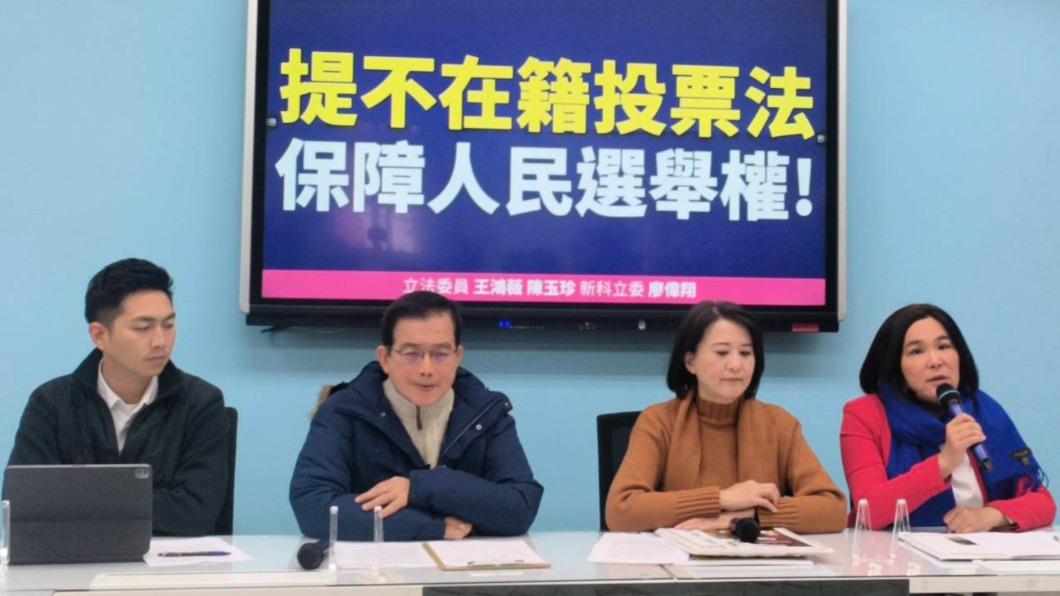TAIPEI (TVBS News) — The Kuomintang (KMT) proposed the Absentee Voting Act on Wednesday (Jan. 24) in response to calls for voting rights for citizens unable to make it back to their home towns for elections.
KMT lawmakers Wang Hung-wei, Jessica Chen, Lai Shyh-bao, and newly-elected legislators Yu Hao and Sean Liao held a press conference surrounding the issue.
According to the Directorate-General of Budget, Accounting and Statistics, the 2021 census showed nearly 2 million people work or study outside their home regions, making an absentee voting system necessary to balance voting costs.
Lawmakers from the KMT argue this system would increase voter turnout, deepen democracy, protect constitutional voting rights, and is vital to further legislation.
Wang Hung-wei pointed out that administrative neglect harms many voting rights and that legislation should have been made earlier to solve the issue.
Jessica Chen, a lawmaker from Kinmen Islands, related an incident where voters failed to return home due to an unexpected cancellation of military transport at the Taipei Songshan Airport, sparking frustration. Chen noted local turnout was only 36%, half Taiwan's mainland average, due to a lack of government initiatives that protect the voting rights of islanders.
Lai Shyh-bao added that the Executive Yuan approved a draft of the "Absentee Voting Act for Citizens," which was proposed by the Central Election Commission three years ago. The Interior Ministry, along with then-Premier Su Tseng-chang, also supported the policy. He highlighted it displays the advancement of the country's election affairs techniques and whether absentee voting should be fully implemented is simply a matter of government will.
Sean Liao stated that absentee voting is a global trend, implemented by countries such as Australia, Denmark, Canada, Finland, Germany, Israel, Italy, Japan, the Netherlands, New Zealand, Norway, Sweden, Switzerland, the UK, the U.S., and South Korea. Taiwan's delay in implementing absentee voting is gradually falling behind other developed countries.











